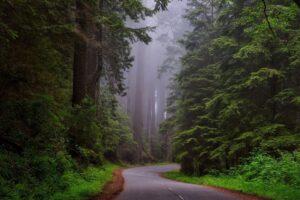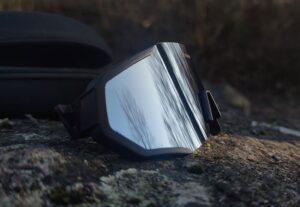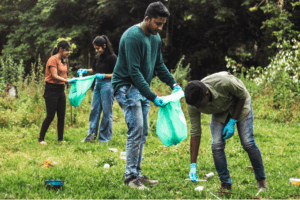Dispersed camping is the legal camping on public lands outside of designated campgrounds. In most cases, dispersed camping is free, though there may be some minor fees for entering specific areas such as state parks or general state wilderness camping permits.
There are a range of terms similar to dispersed camping, such as boondocking, free camping, pirate camping, dry camping, wild camping, parking lot camping, or even mooch camping. All are similar camping styles but may mean something a little different to each camper.
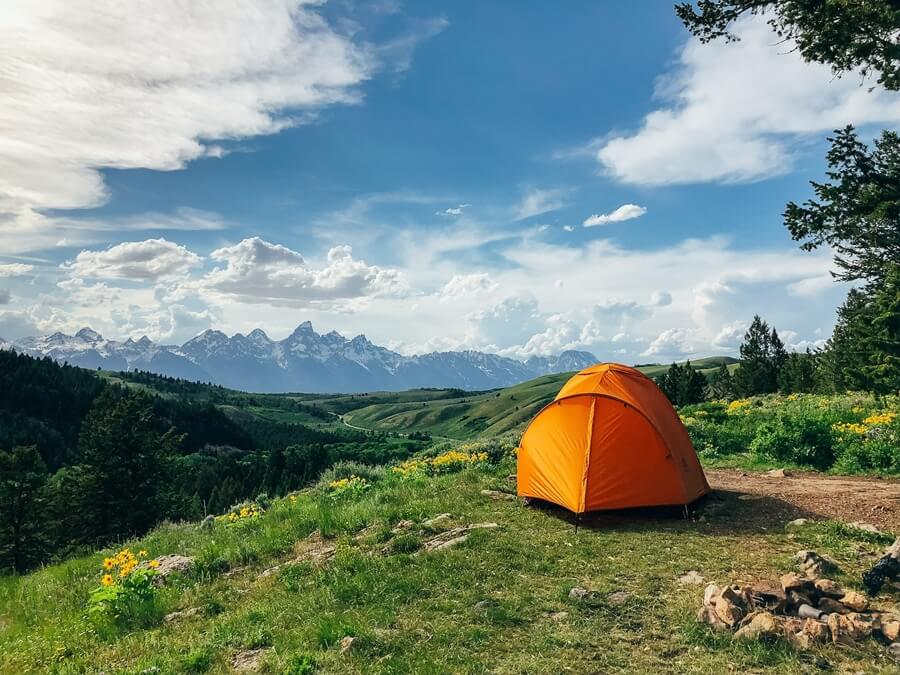
Each camping style can describe either how or where you’re camping, such as in the wilderness or in a private parking lot. It’s illegal to camp on private land without permission, and not all public land is available for dispersed camping legally.
How Does Dispersed Camping Work?
Dispersed camping means that you set up your own campsite without any amenities or facilities provided by the owners of the land that you’re staying on. You may find old fire rings or even pit toilets in some locations, but nothing is guaranteed.
You typically won’t have access to electricity, dumping stations, garbage bins, toilets, or treated water, so you need to be fully self-contained and with all supplies that you’ll need for the length of your stay.
You can bring an RV, car, or campervan, or just set up a tent in the dispersed camping area. In exchange for limited or no facilities, you get a free camping spot with much fewer people around, so it’s a quieter and more secluded camping experience.
What Should You Bring For Dispersed Camping?
Because dispersed camping areas don’t guarantee any type of amenities or features aside from a place to set up camp, you need to ensure you bring essentials that will last the length of your camping trip.
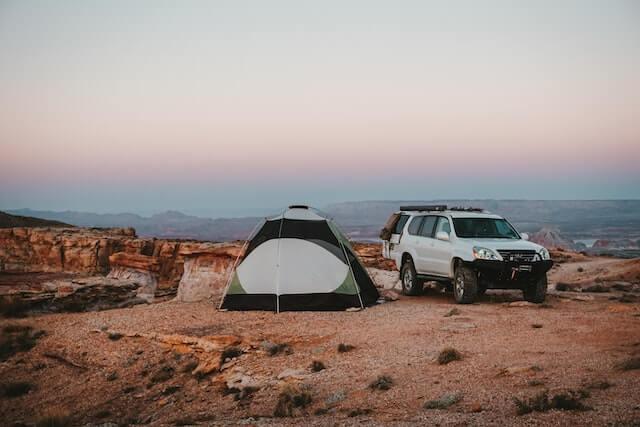
- RV, Tent, or something to sleep in.
- Water or water treatment options (Don’t drink water straight from streams or lakes)
- Garbage bags to carry everything out
- Airtight containers to store food (away from wildlife)
- Toilet paper and a shovel to dig your toilet
It’s important to look at how long you will be staying in a dispersed camping area and what you specifically want during your trip. You may be able to build a fire and cook food that you’ve hunted, or you may prefer to bring a portable stove to cook your food.
Stay Safe While Dispersed Camping
Dispersed camping often puts you into more remote areas with fewer people to scare off the wildlife, so you may encounter all types of animals that are curious about you or that may want your food.
Bears can be a significant issue while camping, so it’s important to keep all of your food locked away in airtight containers, in bear canisters, or even hanging up in a tree away from the bears.
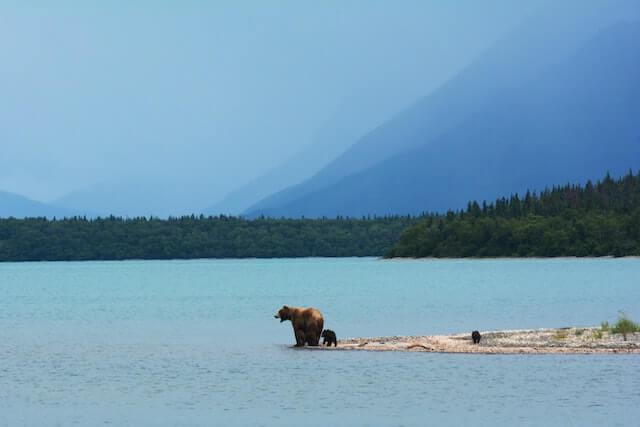
You should also consider carrying bear spray with you, especially when you go hiking and are away from your campsite.
Another issue that can bring your dispersed camping experience to a halt are the water sources available to you while camping. You may find streams, lakes, or other water sources located near you, and if you plan to drink this water, it’s essential that you treat the water by boiling it or using another type of water filtration or cleaning option; otherwise, you may get sick and end your camping trip early.
Where Is Dispersed Camping Legal?
Dispersed camping is legal in specific federal, state, or even local areas, so you need to check the specific town or state you’re visiting to find locations that allow dispersed camping; there are a huge range of websites that provide this type of information, and are easily found through google.
Typically your best options are either Bureau Of Land Management or US Forest Service managed land, both of their websites provide information on where dispersed camping is legal.
In some cases, there are specific areas designated for dispersed camping; otherwise, there are general rules that must be followed when camping, or someone like a park ranger may ask you to move.
- Time limitations on how long you can camp in the same location, such as 14-16 days within the same area before you need to move at least 5-25 road miles away.
- Campsites must be more than 100-200 feet from any water source
- No trash bins are available, so you must take out what you bring in.
- Some locations may require a special fire permit, or campfires may not be allowed.
- Stay 1 mile from any developed campgrounds
- Stay 150 meters away from any road
- Camp on bare ground so that you don’t damage plants
- Human waste must be buried 100 meters from a water source and at least 6 inches underground.
Each location you visit for dispersed camping may have slightly different rules around how and where you can camp, so ensure you check online or with the local office for the land you plan to use, such as a ranger office.
Some other areas that may allow dispersed camping, but aren’t guaranteed to, can include:
- Wildlife Management Areas (WMA)
- National Grasslands
- State, county, or city parks
- Backcountry hiking trails or trailheads
- Water Management Districts
- Trust Lands
- Conservation Areas
- Army Corps Of Engineers Land
- Bureau Of Reclamation
Things To Remember When Dispersed Camping
When you’re dispersed camping, you’re on your own and need to ensure that you look after yourself, your campmates, and the land that you’re on, so there are some common sense things to remember.
- Check if there are any fire restrictions in the local area or if you need a fire permit.
- Check with rangers or online, so you know the rules for each dispersed camping area.
- Ensure that you don’t leave any garbage behind.
- Don’t park on the side of the road; you often need to be at least 100 feet away.
- Have a way to store food away from any local animals, especially bears
- Bring enough water for your trip or options to treat nearby water sources.
- Ensure you let people know where you’re going and bring an emergency beacon with you in case you need help.
- Check you have all supplies required for your entire trip, make a list and check it twice.
If you’re concerned about your first dispersed camping experience, you can try dry camping in a maintained campground to ensure that you have thought of everything, but with the safety net of the facilities available from a real campground.

